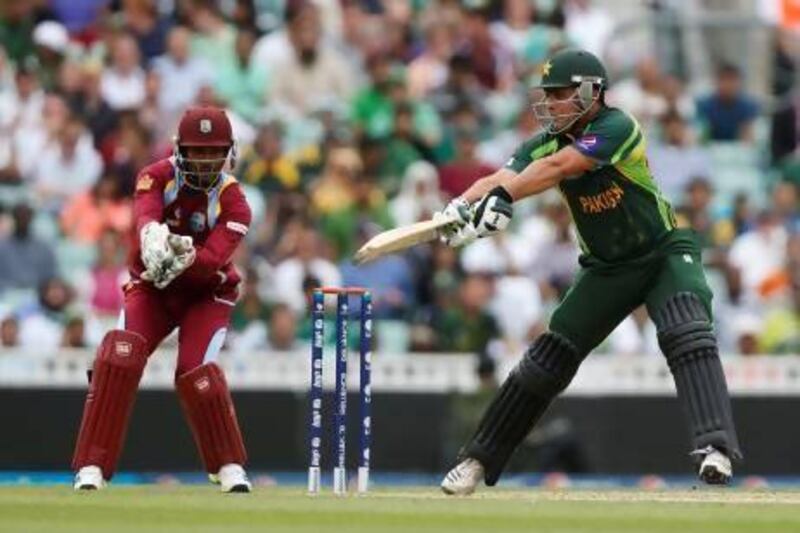Fancy that, eh? So bright and sparkly have Twenty20s been that the world has been lulled into believing that the 50-over format should be buried. This tournament has so far provided resounding proof that nothing of the sort is necessary.
There have been a few very close games already, and not surprisingly they have been low-scoring ones.
This should, but probably will not, put an end to the pernicious notion that games have to be stuffed with boundaries to be entertaining.
By the by, the qualities of the Champions Trophy are also being belatedly acknowledged. It took the ICC nearly 11 years to settle on the right format – short, sharp and only the best teams – which they did in 2009 and have repeated here. What a shame, yet typical, that it is the last one.
Strength in equality
So who is going to win this tournament? Nearing the end of the first week, there is not a single outstanding side and not really a very good one, either. South Africa, besieged by injuries, are good but lack depth. India look good, but look also like conditions may hold their key.
Australia are poor; New Zealand and Sri Lanka did not look great in their thriller, and England have not set the world on fire. To a lesser extent, this was the case at the last World Cup, though home conditions meant India and Sri Lanka looked stronger than they were.
But this is truly the post-Australian age; for a decade, between 1999 and 2009, Australia were favourites to win whatever tournament they played, collecting three World Cups and the Champions Trophy twice along the way.
Now, no side stands out. Conditions make a far greater difference and we genuinely cannot say who will win. Which is great.
The revenge of the bowler
For the first time in many years, this is an ODI tournament in which the bowling is of greater quality than the batting.
There is not a single side with an ordinary attack.
Need evidence?
Even India, Sri Lanka and New Zealand, who have traditionally suffered from not having enough bowling incision, have attacks ranging from pretty good (India) to pretty special (New Zealand).
Pakistan, as ever, are well-blessed and South Africa, without Dale Steyn and Morne Morkel, have still been competitive.
But it is probably England who have the best, led by the magnificent James Anderson.
The spirit of cricket
Is there a more overblown, full-of-itself concept than the spirit of cricket? This is nothing to do with the rules, but a vague social code of how a player should behave (like a Victorian-era gentleman, apparently).
Denesh Ramdin claimed a catch in West Indies' win against Pakistan off the bat of Misbah-ul-Haq, but replays eventually showed that he had not collected it cleanly and that the ball had dropped to the ground.
He celebrated, in any case, and was shown to be dishonest when replays proved it was not a clean catch. Cue the outrage.
First, Misbah had a go at him post-game. Then the ICC took notice and slapped him with a two-game ban, potentially ruling him out of the tournament.
Clearly it was wrong of him to do so, but how big a sin is it, really? Because, to many, standing at the crease as a batsman when you know you have edged it but are waiting for replays to prove it seems as in violation of this spirit as what Ramdin did.
Batsmen, anyone?
No side's batting is as weak as Pakistan's. We all know they are not overflowing with options.
Apart from a brief period in the 1970s, this has mostly been the case. But in persisting with the likes of Imran Farhat and Shoaib Malik, and not investing in the likes of Ahmed Shehzad, Asad Shafiq, Umar Akmal and Fawad Alam, they have wasted their admittedly meagre pool.
The batting has been as abysmal as the bowling has been resplendent; in two games, only Misbah and Nasir Jamshed have reached double figures in both. Farhat, Malik, Mohammad Hafeez, Shafiq and Kamran Akmal have 25 runs between them in two games.
Malik and Farhat's failures are particularly galling. Both have hung around for well over a decade and never really settled, though Malik once was on the verge of becoming a very good player. Farhat remains as limited as he was in 2001.
Follow us
[ @SprtNationalUAE ]





